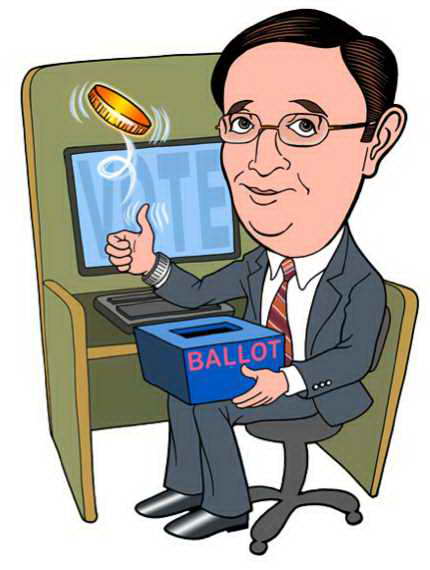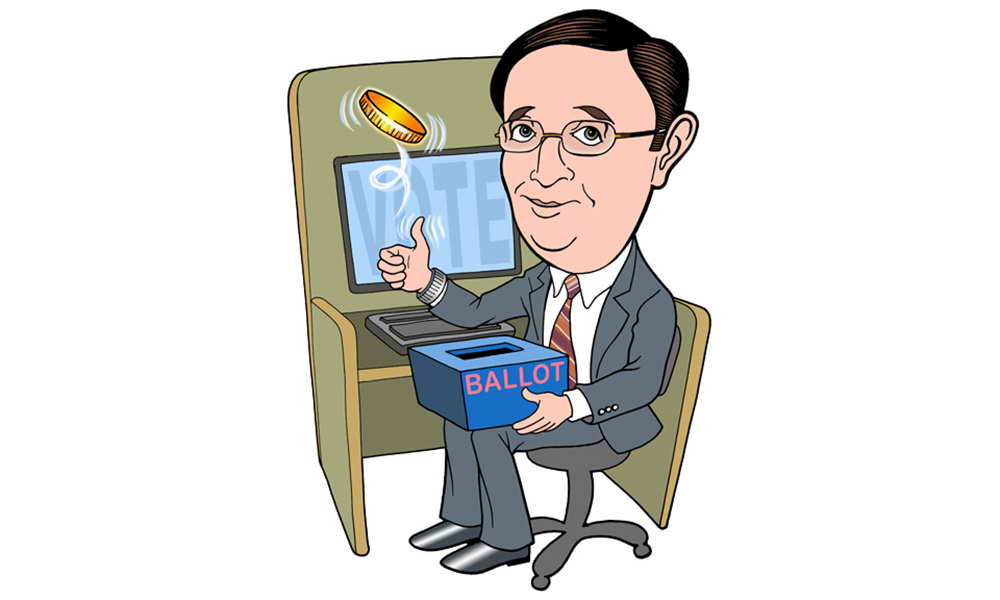By Dr. Lee M. Miringoff
Although the political leadership in Washington is offering up its carefully crafted conclusions for Election 2010, I’m checking out pre-election and exit polls to find out what voters nationally were actually saying.
 To the degree this election was a referendum on the president, something the GOP had hoped for, and not the choice between national parties or localized issues the Democrats had wanted, then President Obama’s forty something approval rating was a prescription for Democratic disaster on Election Day. There was no reason to suspect he would overcome the historical trends.
To the degree this election was a referendum on the president, something the GOP had hoped for, and not the choice between national parties or localized issues the Democrats had wanted, then President Obama’s forty something approval rating was a prescription for Democratic disaster on Election Day. There was no reason to suspect he would overcome the historical trends.
Also, generic questions about voter preferences for Congress pointed to the same conclusion. The McClatchy-Marist national poll numbers, like many other polls, thought the gap in voting for Congress would hover around 6% in favor of the GOP among those most likely to vote.
Team Obama’s efforts to rally the Democratic base to close the so-called “enthusiasm gap” clearly came up short. Although the McClatchy-Marist national poll found a narrowing gap in the closing days of the campaign from a plus 23% in favor of the GOP over the Democrats to a plus 14%, this was clearly a case of too little, too late.
The turnout recipe for this midterm election had a decidedly different flavor than 2006 or 2008. This year’s electorate was older and more conservative. Not a good sign for the Democrats.
This data all identifies the strong headwinds that President Obama and the Democrats had to navigate. With the energy of the Tea Party, the sleepiness of the president’s electoral base, and the shifting tides of independent voters, the White House was truly in for a “shellacking.”
A few additional sidebars.
- More of the same from President Obama? Following the vote, President Obama said what president’s typically say in defeat. He learned his lesson. But, is he planning to change his approach or improve on his communication? So far, he put the Bush tax cuts on the table. He also said he failed to convince voters of his policy successes. These are mixed signals and don’t speak well to the “lesson” he claims to have learned.
- The Tea Party giveth and the Tea Party taketh away. The dugout chatter this election season has been about the Tea Party. According to the Exit Poll, approximately, 40% of this year’s electorate was supportive of their efforts. Tea Party candidates for the U.S. Senate, for example, in Florida, Kentucky, Pennsylvania, Utah, and Wisconsin were victorious. But, in Delaware, Nevada, and Colorado their Senate candidates went down to defeat. In the House of Representatives numerous candidates with Tea Party backing will be taking the oath of office in January.
- What’s a GOP leader to do? Nationally, voters want the new Congress and the White House to work together on a common agenda. But, Republican voters and Tea Party sympathizers are divided over whether the GOP should compromise with President Obama or stand firm even if it means things don’t move ahead.
- Out of the starting bloc, Speaker-to-be John Boehner seems less confrontational than Senate Minority Leader Mitch McConnell. This may reflect nothing more than the fact that Boehner already has his majority and McConnell is still in search of his in 2012.
What does this mean for the next few years? As The National Journal’s Charlie Cook writes, the biggest post-election sin is over reading a mandate or creating one that simply isn’t there. On health care, the plurality of voters want the recently passed law repealed, But, a similar number want it either left alone or expanded. On the fiscal side of the ledger, voters who want to reduce the deficit or spend to create jobs outnumber those who think cutting taxes should be the highest priority for the next Congress. Yet, tax cuts may take all the oxygen out of the committee rooms.
What’s the bottom line? What a difference two years has made for President Obama. But, neither party is particularly popular. The GOP is viewed unfavorably by 52% and the Democrats are seen that way by 53%.
The election may have been more about President Obama losing the war on expectations and the winds of change swirling for the third consecutive election than about a specific policy mandate.
Looking ahead to 2012? President Obama will have to do more than hope the Reagan comeback of 1984 and the Clinton comeback of 1996 are in the cards for him, as well. The GOP will have to find a way to reconcile the Tea Party movement with its established leadership. Did anyone mention jobs and the state of the economy? That may, again, be paramount for everyone’s chances next time.

